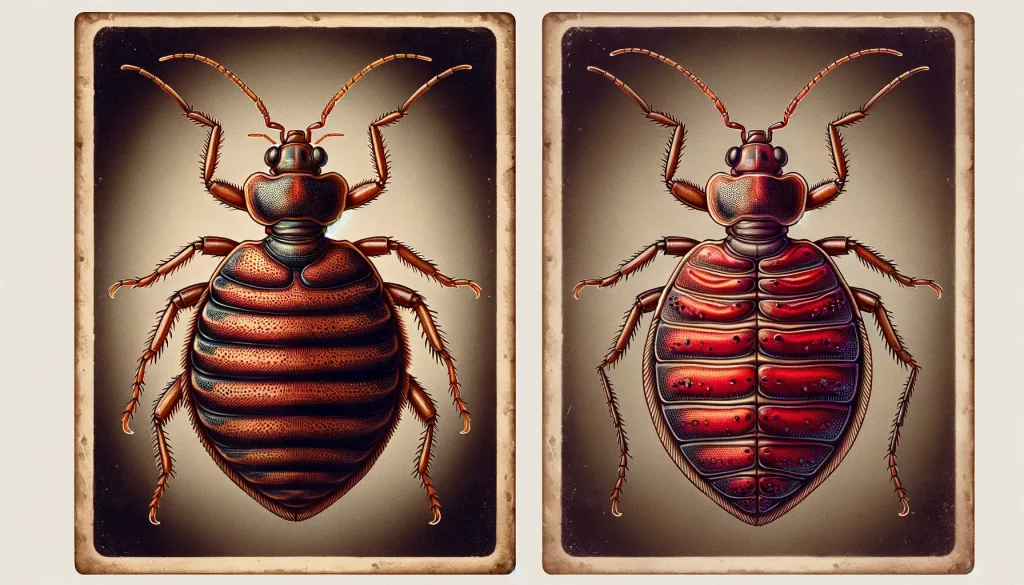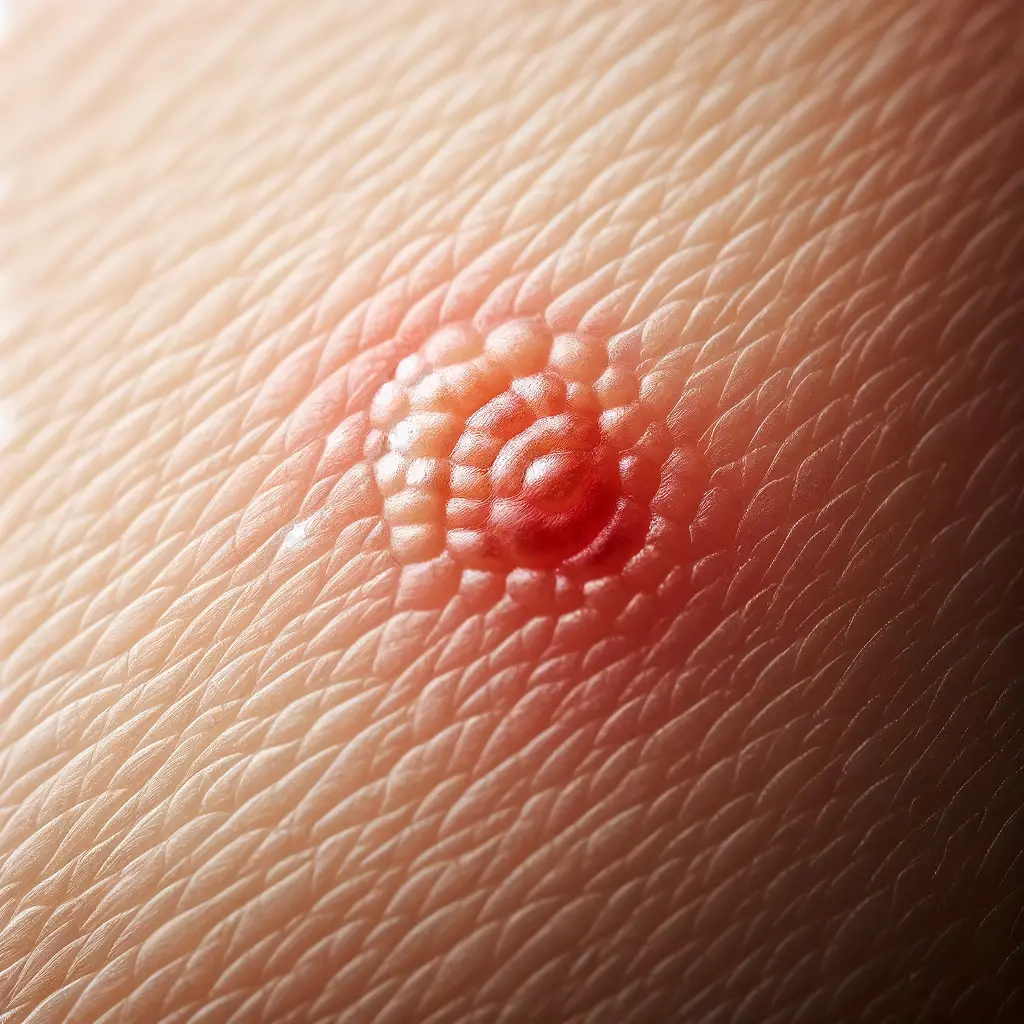Welcome to your comprehensive guide on tackling bed bug infestations. If you’re wondering about those early warning signs, let me guide you through them. You might start noticing small, itchy bites or tiny blood spots on your sheets. And if you’re curious about where these critters first make their mark in your home, it’s typically around beds and furniture. Now, if things get more serious, a severe infestation has its own tell-tale signs. You might detect a peculiar odor or even hear some sounds.
Let’s also talk about what these pests look like – their size, color, and shape – important details if you’re trying to identify them. Health-wise, it’s crucial to understand the effects of bed bug bites. They can look quite distinct and, in rare cases, lead to long-term health issues. And if you have pets, you might be concerned about whether bed bugs bite them too. The psychological and physical impact on your family can be significant. These pests don’t just cause skin irritation; they can lead to stress and potential allergies. We’ll bust some myths about bed bug causes, explore what attracts them, and discuss the conditions that make your home more inviting to them. And yes, even clean homes can fall victim to a bed bug invasion. Comparing bed bugs with other pests like cockroaches is also vital. They have unique behaviors and thrive under different conditions. Seasonal changes can affect their activity, and we’ll delve into that.
When it comes to getting rid of them, you might be torn between DIY methods and calling in the experts. We’ll explore the costs, benefits, and downsides of professional extermination, along with some natural treatment options. I’ll also guide you on preventive measures to keep these pests at bay. Choosing the right exterminator is crucial. We’ll talk about what qualifications and certifications to look for, and if you’re considering Shimmy Pest Control, I’ll provide a comparison to help you make an informed decision.
This is your one-stop guide, addressing all your concerns and providing practical solutions for managing and preventing bed bug infestations. If you live near Laguna Beach, California and are in need of bed bug treatment, removal, management, or inspection, contact us. Let’s dive in and tackle this together.
Bed bugs are commonly found in mattresses (along seams and tags), bed frames (in crevices), and bedding (including pillows, sheets, blankets, comforters, duvets). They can spread to clothing, be on pets, and travel with your from time to time.
Indicative of a severe bed bug infestation are large amounts of blood stains, dark or rusty spots of bed bug excrement, a sickly sweet scent from their scent glands, and numerous nearly translucent molted skins.
The most notable smell associated with bed bug infestations is an unpleasant, musty odor, similar to a wet towel, emanating from bed bug pheromones, particularly strong in large numbers. Bed bugs do not produce any distinctive sounds.
Bed bugs are known for their preference for hiding in areas close to their human hosts. Common hiding spots include mattresses (along seams and tags), bed frames (especially in small cracks), and bedding (including pillows, sheets, and duvets). They are often described as nocturnal creatures, typically emerging at night to feed, drawn to the carbon dioxide emitted by sleeping humans. In addition to bedrooms, bed bugs may hide in cracks and crevices in walls or wood, armchairs and couches, behind baseboards, around mattress buttons, inside box springs, and even in items like stuffed animals, suitcases, clothing, and backpacks. As an infestation grows, they can extend to unusual places like curtains, along ceilings, in electrical outlets, and behind pictures.
Bed bugs have an oval shape and are about 3/16th of an inch long. They are brown and flat before feeding, turning more red, swollen, and elongated after feeding. They have 6 legs, 2 antennae, and reduced “wing pads,” but cannot fly.
Yes, bed bugs are blood feeders that depend on blood for their food source. Bites can cause itchiness and a burning sensation, developing into red bumps known as papules or wheals.
Bed bug bites may appear as multiple, small, red marks in tight lines or clusters. They can cause itchiness, initially presenting a slight burning sensation and leading to the development of red bumps, swelling, or in extreme cases, blister-like skin inflammations.
Bed bug bites are red, raised, and flat, typically appearing in a straight row, which may take a few days to show up as they feed every 7–10 days. In contrast, flea bites often resemble mosquito bites, are randomly placed, have a dot shape with a dark red center, and immediately itch.
Potential long-term risks include secondary infections from scratching the bites, allergic reactions requiring medical attention, and psychological effects such as anxiety and insomnia.
Bed bugs primarily feed on human blood, but they can bite pets if necessary. Similar to humans, pets can experience discomfort and itching from these bites.
Bed bugs, while not known for transmitting diseases, can cause irritating bites that may lead to allergic reactions. Excessive scratching of these bites can damage the skin and risk infection. They rapidly multiply and can double their population every 16 days, quickly turning a minor infestation into a severe one. Bed bugs are elusive and nocturnal, making them difficult to detect and control.
Bed bug infestations can have a significant emotional and psychological impact on families. The presence of bed bugs causes stress, anxiety, and can disrupt sleep patterns. The irritation from bites and potential for allergic reactions can also affect the physical health of family members.
Living with a bed bug infestation can lead to anxiety, stress, and insomnia. The constant worry about being bitten during sleep and the presence of these pests can greatly impact mental well-being and daily life.
While bed bugs are not directly linked to causing respiratory problems, their bites can cause allergic reactions in some people, requiring medical attention.
Bed bugs are excellent hitchhikers and can be brought into homes via luggage, clothing, and linens. They are attracted to sleeping humans by carbon dioxide, body heat, and biochemical signals emitted while sleeping.
Bed bugs can infest clean homes as they are usually brought in from external sources like luggage or previously infested items.
A common misconception is associating bed bugs with filth or sanitation problems. However, bed bugs are not necessarily linked to cleanliness and can infest any environment where they find hosts, including high-end locations.
Bed bugs are primarily attracted to sleeping humans due to the emission of carbon dioxide and body heat.
Bed bugs found in California are small, brownish-red bugs that feed on human blood. They are adaptable and can infest various environments.
Professional pest control is the most effective way to get rid of bed bugs, as they are difficult to eliminate through DIY measures.
Professional pest control companies employ a variety of methods to eradicate bed bugs, including conventional treatment, fumigation, heat treatment, and steam remediation. These methods are chosen based on the unique situation of each infestation. The process can be complex, requiring a thorough inspection to locate bed bugs and decide on the most effective treatment. DIY methods are generally not recommended due to the rapid breeding and small size of bed bugs, making it challenging for untrained individuals to effectively eliminate them.
The time required to fully exterminate bed bugs from a home can vary. Many infestations require multiple treatments and different methods to completely eradicate bed bugs. The extermination process is tailored to each unique situation, and follow-up inspections may be necessary to ensure the infestation is fully addressed.
DIY solutions for bed bug extermination often include steps like inspecting hot spots, washing bedding at high temperatures, and vacuuming thoroughly. However, due to the complexity and resilience of bed bugs, professional extermination is usually the most effective approach. Experts are trained in detecting and eliminating bed bugs at all life stages, which is crucial for a successful extermination.
The cost of professional bed bug extermination varies based on several factors, including the size of the infestation, the location, and the type of treatment used. It’s difficult to provide a one-size-fits-all estimate, as the severity and specifics of each infestation can significantly influence the cost.
Professional extermination methods are more efficient and powerful than DIY solutions or natural home remedies. Experts offer environmentally friendly options like insecticide treatments, fumigation, heat treatment, steam remediation, and bed bug mattress covers. Canine detection services are also used for their speed and accuracy in locating bed bugs.
Typically, potential downsides might include the cost, the need for multiple treatments, and the inconvenience of preparing for and undergoing extermination processes.
Natural treatments for bed bugs include washing infested bedding at high temperatures (at least 140°F for 90 minutes), vacuuming thoroughly, and freezing infested items at temperatures below 0°F for at least four days. Peppermint oil can also be used as a natural contact insecticide but may not be as effective as professional treatments.
To prevent bed bug infestations, constant vigilance and regular inspection are key. Checking luggage and clothing after traveling, using bed bug mattress liners and covers, and being cautious with secondhand furniture can help prevent infestations. Vacuuming and using bed bug encasements for mattresses and box springs are also effective preventive measures.
When selecting a professional exterminator, it’s important to consider their qualifications and certifications. Ideally, a qualified exterminator should have:
State Licensing: Most regions require exterminators to have a state license. This ensures they adhere to local regulations and standards in pest control.
Certified Training: Look for certifications in pest control and extermination techniques. These certifications indicate that the exterminator is trained in the safe and effective use of various pest control methods.
Experience: An experienced exterminator is more likely to understand the nuances of different infestations and how to handle them effectively.
Specialized Knowledge: Certifications or training in specific areas, like bed bug extermination or eco-friendly pest control methods, can be advantageous.
Professional Affiliations: Membership in professional bodies, such as the National Pest Management Association (NPMA), can be a sign of an exterminator’s commitment to staying current with best practices and industry standards.
Shimmy Pest Control is headquartered in Laguna Hills, California, and operate in surrounding cities, counties, and hubs that include but aren’t limited to; Laguna Woods, Mission Viejo, Laguna Niguel, Aliso Viejo, Lake Forest, Laguna Beach, Ladera Ranch, Irvine, Ranch Santa Margarita, Dana Point, Newport Beach, San Clemente




